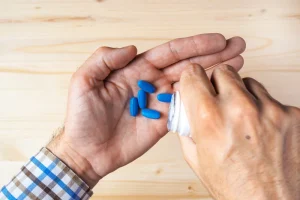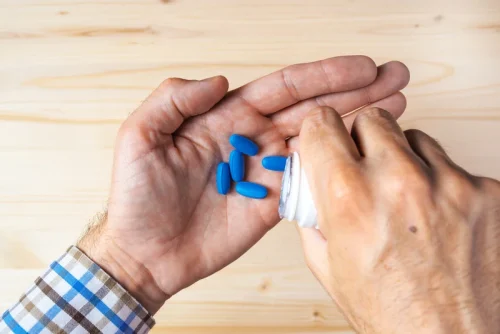Thus, when you sip a few servings of whiskey, you will most likely become more drunk. If you drink heavily for too long, the body adjusts to the increasing presence of alcohol. A person who drinks more and more will eventually tolerate its effects. “Not only does this mean your body can’t metabolize alcohol as quickly as it did when you were younger, it also increases the direct damage to your liver from alcohol,” she says. Take the free Drinking Check to understand more about how much alcohol you’re drinking and receive personalised results and guidance on how to cut back if you need to. Alcohol tolerance refers to the way your body responds to alcoholic beverages.
Alcohol Tolerance & Alcohol Use Disorder (AUD)
- If you need some help keeping track of the number of units you’re drinking in a week, try using our free MyDrinkaware app.
- So when your stomach is full, there’s less chances of a gastric attack and you may consume more alcohol with confidence.
- Low alcohol tolerance means you show these signs at lower drinking levels than usual.
- GABA is a chemical messenger in the brain, and it’s part of your body’s rest and digest system.
- Another risk is that you could actually intensify alcohol dependence.
- Alcohol tolerance refers to the bodily responses to the functional effects of ethanol.
- Quitting alcohol altogether can also affect tolerance fairly quickly.
Many people want to build alcohol tolerance to party for a long time with friends and drink as much as they can without losing their senses, vomiting or experiencing nausea. If you’re worried that you have symptoms of alcohol dependence, talk to your GP or seek further information from a support service before stopping. However, even if they seem sober, the person could still cause serious harm if they tried to drive or perform other complex tasks. That’s because certain effects of alcohol, including slowed reaction time and poor peripheral vision, appear no matter how high your tolerance is. Overcoming alcohol dependence might feel like an overwhelming and challenging journey that requires commitment, support, and professional help. Your liver handles alcohol, but if you drink too much too quickly, it’ll get overwhelmed.

Signs Of A High Alcohol Tolerance

A higher tolerance means you are likely to drink more at one time, which puts you at risk for experiencing adverse and potentially dangerous side effects from alcohol. If you have a developed an alcohol tolerance that you are ready to address, there are safe ways to lower it. Addiction Resource is an educational platform for sharing and disseminating information about addiction and substance abuse recovery centers. Addiction Resource is not a healthcare provider, nor does it claim to offer sound medical advice to anyone. Addiction Resource does not favor or support any specific recovery center, nor do we claim to ensure the quality, validity, or effectiveness of any particular treatment center.
Abstinence from alcohol
Usually, one standard drink is metabolized in one hour, but people who have little or no ADH have no simple way of metabolizing the alcohol. Thus they develop effects and build tolerance faster than people who do have ADH. Ingested ethanol is metabolized by an enzyme, “alcohol dehydrogenase,” to a metabolite called acetaldehyde. The acetaldehyde is metabolized by an enzyme ‘aldehyde dehydrogenase’ to the final product. Some people, by nature, lack the enzyme aldehyde dehydrogenase, which leads to an excess of acetaldehyde in the blood. However, body type, gender, ethnicity, and metabolism are also factors that contribute to the development of tolerance.
Having a high tolerance to alcohol can, for some, be a sign of alcohol abuse, or addiction. It can also lead to a pattern of heavy drinking, which can be dangerous. While there are instances of metabolic tolerance, the most common types of tolerance are developed through the experience of the person drinking alcohol. We have mentioned that not all drinks will have the same level of strength, so you might consume one alcoholic beverage more and handle it better than another drink. Because of this, you have to choose your drink wisely during parties or drinking sessions to increase your alcohol tolerance. In some cases, tolerance may already be a sign of alcohol use disorder.
Addiction Treatment Programs For Alcohol Abuse
People can develop acute tolerance to alcohol’s effects on motor control but not its effects on inhibitions. The more alcohol intake you can handle, the more you can mask an alcohol problem. However, it is possible to lose your level of tolerance to alcohol, particularly if you quit drinking. The key to increasing alcohol tolerance is to balance your drinking, social activity, and parties well.

Our writers and reviewers are experienced professionals in medicine, addiction treatment, and healthcare. AddictionResource fact-checks all the information before publishing and uses only credible and trusted sources when citing any medical data. Like every other drug or compound, ethanol is metabolized by the liver and stomach, and the metabolism of ethanol in individuals varies. This variation is due to levels of a metabolic enzyme called alcohol dehydrogenase (ADH) in the body. It converts alcohol into https://ecosoberhouse.com/article/marijuana-addiction-how-addictive-is-weed/ acetaldehyde (a very toxic intermediate product) and later converts it into water and carbon dioxide.
Developing tolerance can be sped up if we repeatedly perform the same task or activity under the influence of alcohol. AddictionResource aims to present the most accurate, trustworthy, and up-to-date medical content to our readers. Our team does their best for our readers to help them stay informed about vital healthcare decisions. Calls to our general hotline may be answered by private treatment providers. We may be paid a fee for marketing or advertising by organizations that can assist with treating people with substance use disorders. Some studies found that sons of fathers with AUD were less impaired by alcohol than the sons of fathers who did not have AUD.

If you’re going to drink, keep these expert-recommended tips in mind
Alcohol how to build alcohol tolerance Misuse and TreatmentIf you are concerned about alcohol tolerance, you may also be wondering about alcohol misuse and the possibility of needing treatment. According to the National Institute on Alcohol Abuse and Alcoholism (NIAAA), more than 17 million people were struggling with an alcohol use disorder in 2014. People who received appropriate treatment, however, can make significant recoveries. About a third of people who participate in alcohol treatment make full recoveries, and many others substantially reduce their use and report experiencing fewer problems related to alcohol consumption. A tolerance break is temporary abstinence from a substance to reduce or avoid chemical dependence and tolerance.